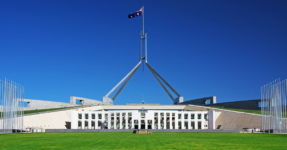The Offence of Knowingly Providing False or Misleading Information to a Commonwealth Entity

Former One Nation senator, current Great Australian Party Leader and self-styled ‘senator in exile’ Rod Culleton has vowed to fight charges that he knowingly provided false or misleading information to a Commonwealth entity.
The basis of the allegations
The charges arise from allegations that Mr Culleton made a false declaration to the Australian Electoral Commission (AEC) in his nomination for the 2021 federal election that he was not an undischarged bankrupt, when a Bankruptcy Register Search on the National Personal Insolvency Index shows that he is one.
On 22 April 2022, the AEC released a public statement advising that it had “referred this matter to the Australian Federal Police for their consideration”.
The Commission further noted that:
“Under section 44(iii) of the Constitution: “Any person who is an undischarged bankrupt or insolvent, shall be incapable of being chosen or of sitting as a senator or a member of the House of Representative”.”
The referral resulted in the Australian Federal Police (AFP) formally charging Mr Culleton with one count of knowingly providing false or misleading information.
The matter was listed in Perth Magistrates Court on 30 September 2022, and it has been reported that a warrant was issued for Mr Culleton’s arrest after he failed to attend court on that day.
Defiant in the face of the allegations
Mr Culleton has remained defiant in the face of the charges against him.
He says he is currently in New South Wales and advised he will return to Western Australia when he is ready to do so.
He asserts it is “absolute nonsense” that he was ever bankrupt, looks forward to defending the allegations and has questioned the legal validity of the charge brought against him.
“To be honest, I want it to go to trial, it needs to go to trial to put an end to this bastardising over this bullshit bankruptcy, because I’m not bankrupt, I’ve never been bankrupt”, Mr Culleton stated.
“This is an absolute breach of law… I was duly elected, there is no question about that.”
Why is being an undischarged bankrupt relevant?
According to the AEC, the disclosure of bankruptcy is relevant in the context of a political nomination because section 44 of the Commonwealth Constitution, titled ‘disqualification’, states:
Any person who–
(i.) Is under any acknowledgment of allegiance, obedience, or adherence to a foreign power, or is a subject or a citizen or entitled to the rights or privileges of a subject or a citizen of a foreign power: or
(ii.) Is attainted of treason, or has been convicted and is under sentence, or subject to be sentenced, for any offence punishable under the law of the Commonwealth or of a State by imprisonment for one year or longer: or
(iii.) Is an undischarged bankrupt or insolvent [emphasis added]: or
(iv.) Holds any office of profit under the Crown, or any pension payable during the pleasure of the Crown out of any of the revenues of the Commonwealth: or
(v.) Has any direct or indirect pecuniary interest in any agreement with the Public Service of the Commonwealth otherwise than as a member and in common with the other members of an incorporated company consisting of more than twenty-five persons:
shall be incapable of being chosen or of sitting as a senator or a member of the House of Representatives.
But sub-section iv. does not apply to the office of any of the Queen’s Ministers of State for the Commonwealth, or of any of the Queen’s Ministers for a State, or to the receipt of pay, half-pay, or a pension by any person as an officer or member of the Queen’s navy or army, or to the receipt of pay as an officer or member of the naval or military forces of the Commonwealth by any person whose services are not wholly employed by the Commonwealth.
No stranger to the criminal law
And it is certainly not the first time Mr Culleton has found himself the subject of criminal proceedings.
He was charged with larceny after a dispute with a tow truck driver in April 2014, during which he refused to surrender the key to a car he was leasing.
He did not attend Armidale Local Court when the matter came before it in March 2016, and was convicted in his absence.
He made a successful ‘section 4 annulment application’ to have the conviction set aside, before pleading guilty to the offence but avoiding a criminal conviction, under the provisions of section 10 of the Crimes (Sentencing Procedure) Act 1999.
He was once against charged with larceny after a dispute in 2015 whereby he allegedly refused to surrender a $27,000 hire car after defaulting on loan. It has been reportedly published that the matter:
“was listed to be heard in the Perth Magistrates Court over a four-day period, in September 2017. When the case was heard, Culleton represented himself, shouted at the magistrate and threw his eyeglasses in her direction (they hit a table); a police officer removed him from the court, but he apologised to the court and was allowed to return to cross-examine witnesses.”
It has been reported that the matter was adjourned for a further day of hearing in 2018, and is yet to be finalised.
And in March 2022, he was charged with breaching a quarantine directions, did not enter a plea when the matter came before Kalgoorlie Magistrates Court the next month, advised the court that he would be taking the matter to the High Court of Australia and was granted an adjournment for him to do so.
Previous disqualification
On 3 February 2017, the High Court of Australia unanimously found that Mr Culleton was, due to the operation of section 44(i) of the Constitution, ineligible for election to the Senate in 2016 because he had been convicted by a New South Wales court and faced a sentence of up to two years in prison.
The hardnosed politician now faces yet another legal struggle.
The offence of knowingly providing false or misleading information to a Commonwealth entity
Knowingly providing false or misleading information to a Commonwealth entity is an offence under section 137.1 of the Criminal Code Act 1995 (Cth) which carries a maximum penalty of 12 months in prison.
To establish the offence, the prosecution must prove the defendant:
- Gave information to another person; and
- Did so knowing the information was false or misleading or omitted any matter or thing without which the information was misleading, and
- The information was given:
- To a Commonwealth entity,
- To a person exercising powers or performing functions under, or in connection with, a law of the Commonwealth or
- In compliance or purported compliance with a law of the Commonwealth.
A ‘Commonwealth entity’ encompasses the Commonwealth itself or a Commonwealth authority.
A ‘Commonwealth authority’ is defined as a body established by or under a law of the Commonwealth, but does not include:
- A body established by or under:
- the Australian Capital Territory (SelfGovernment) Act 1988,
- the Corporations Act 2001,
- the Norfolk Island Act 1979, or
- the Northern Territory (SelfGovernment) Act 1978, or
2. A corporation registered under the Corporations (Aboriginal and Torres Strait Islander) Act 2006, or
3. An organisation registered, or an association recognised, under the Fair Work (Registered Organisations) Act 2009, or
4. Another body specified in the regulations.
The defendant is not guilty of the offence if he or she establishes, on the balance of probabilities, that:
- The information was not false or misleading in a material particular, or
- The Commonwealth entity did not take reasonable steps to inform him or her of the existence of the offence.
Duress is a legal defence to the charge.






